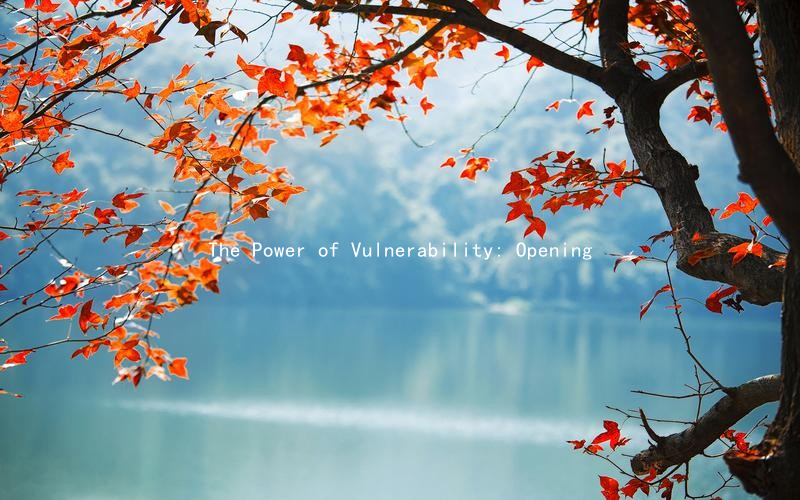The Power of Vulnerability: Opening Up to Mend Heartbreak
In the intricate dance of romance, vulnerability can often feel like a double-edged sword. On one side lies the fear of getting hurt, particularly after a heartbreak, while on the other side rests the profound potential for true connection and healing. Embracing vulnerability can be a transformative step towards building healthier, more fulfilling relationships, and it can ultimately mend the wounds left by past experiences.
First and foremost, its essential to understand what vulnerability truly means in the context of love and relationships. It’s not about exposing every detail of your life or sharing your deepest secrets with someone youve just met. Instead, vulnerability is the willingness to be open and honest about your feelings, fears, and experiences. It requires courage to acknowledge your emotional state, especially after a heartbreak, but doing so can lead to deeper connections with others.
When you allow yourself to be vulnerable, you communicate authenticity. In a world where many people wear masks to protect themselves, showing your true self can be refreshing and inviting. Sharing your insecurities and struggles can create a space for your partner to reciprocate, fostering a mutual understanding that can strengthen your bond. This exchange is particularly important in the early stages of dating, where misunderstandings can easily arise due to fears of judgment or rejection.
Moreover, vulnerability breeds empathy. When you open up about your experiences, especially those that have caused you pain, it provides your partner with insight into your world. They can better understand your responses to various situations and appreciate the layers of your personality. This often leads to deeper discussions that can enhance emotional intimacy, making both partners feel seen and valued.

It’s also crucial to recognize the role of vulnerability in healing from past heartbreaks. When you bravely share your past experiences, it can help you process those emotions in a safe environment. By articulating your feelings—whether it’s sadness, anger, or confusion—you release pent-up emotions that can otherwise weigh heavily on your heart. In doing so, you are not only providing your partner with context about who you are but also allowing yourself the opportunity to grow and move forward.
However, vulnerability must be approached with care and timing. It’s important to establish trust before diving deep into traumatic experiences. Not everyone you meet will be equipped to handle your openness, and that’s okay. Gauge the readiness of your partner, and practice active listening to ensure that they are also comfortable sharing their own stories. A balanced exchange creates a safe space where both individuals can flourish.
Finally, it’s worth noting that vulnerability doesn’t imply the absence of boundaries. While sharing your emotions is essential, it’s equally important to maintain a sense of self-respect and integrity. Know what you are comfortable with sharing and what feels too revealing. Establishing boundaries not only protects you but allows healthier interactions, paving the way for genuine relationships based on mutual respect.
In conclusion, embracing vulnerability can be a powerful tool in navigating the often tumultuous waters of love and relationships. It allows for authenticity, promotes empathy, aids in healing, and fosters deeper connections. By daring to open up, you not only mend the fractures caused by heartbreak but also pave the way for future love that is grounded in understanding and compassion. Remember, true strength lies not in the absence of fear, but in the courage to be open and vulnerable, creating a space where love can truly thrive.





